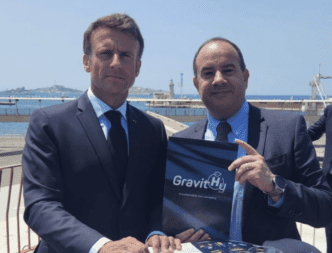European startups ecosystem proved its resilience last year, drawing $52 billion in venture capital despite global market turbulence and regulatory headwinds. A new “Deal Flow” report by law firm Orrick reveals that, while the frenzied highs of the pandemic era have cooled, investor confidence in Europe’s long-term potential remains solid.
Following the COVID-fueled investment boom of 2021 and 2022 and a sharp slowdown in 2023, the latest figures suggest the European tech scene is entering a more stable phase. But that stability masks a growing divide—early-stage startups are thriving, while companies trying to scale face a tougher battle for growth capital.
One of the most noticeable changes in Europe’s venture market last year was a clear shift in deal structures. According to Orrick’s analysis of 375+ investments, many startups and investors have started adopting the British Venture Capital Association’s model agreements, a move that brings European Startups deals closer to U.S. standards. For founders, this change often means smoother negotiations and faster closings.
Another trend shaping the landscape is the growing emphasis on talent. Over 70% of deals now include an expanded option pool, a signal that startups are doubling down on retaining top employees. Rather than chasing quick exits, many founders are clearly focused on building companies that scale.
Interestingly, the average size of investor-led deals surged by 66%, hinting at bigger bets on select opportunities. In contrast, deals initiated by startups saw a slight dip, though they still made up the majority.
Yet, not everything is moving in the right direction. Europe continues to grapple with a shortage of growth-stage funding—a challenge that threatens the ambitions of startups ready to scale. While seed and Series A rounds remain plentiful, accessing the hefty capital required for global expansion is proving harder.
Equity financing continued to dominate the market, while debt-based deals lost ground. Advanced Subscription Agreements (ASAs) and Simple Agreements for Future Equity (SAFEs) became the preferred funding tools, reflecting a cautious but steady investor appetite.
Secondary transactions also became more common. Roughly 30% of rounds involved founders or early investors cashing out part of their stake—sometimes as early as Series A. This shift signals a maturing market, where founders are increasingly looking to secure personal returns while still growing their companies.
AI, Deep Tech, and SaaS Dominate the Investment Landscape Amongst European Startups
Sector-wise, the usual suspects led the way. AI and machine learning startups accounted for 33% of deals, cementing their place at the heart of Europe’s tech ambitions. Deep tech ventures also gained ground, climbing to 23%, while SaaS and platform businesses captured 21% of the market. Meanwhile, fintech held steady at 16%.
Orrick’s report makes it clear: Europe’s tech ecosystem is evolving. More deals are being structured for long-term growth, and founders are building with global scale in mind. But unless the continent can unlock more growth-stage capital, many promising companies risk stalling just as they’re ready to soar.












